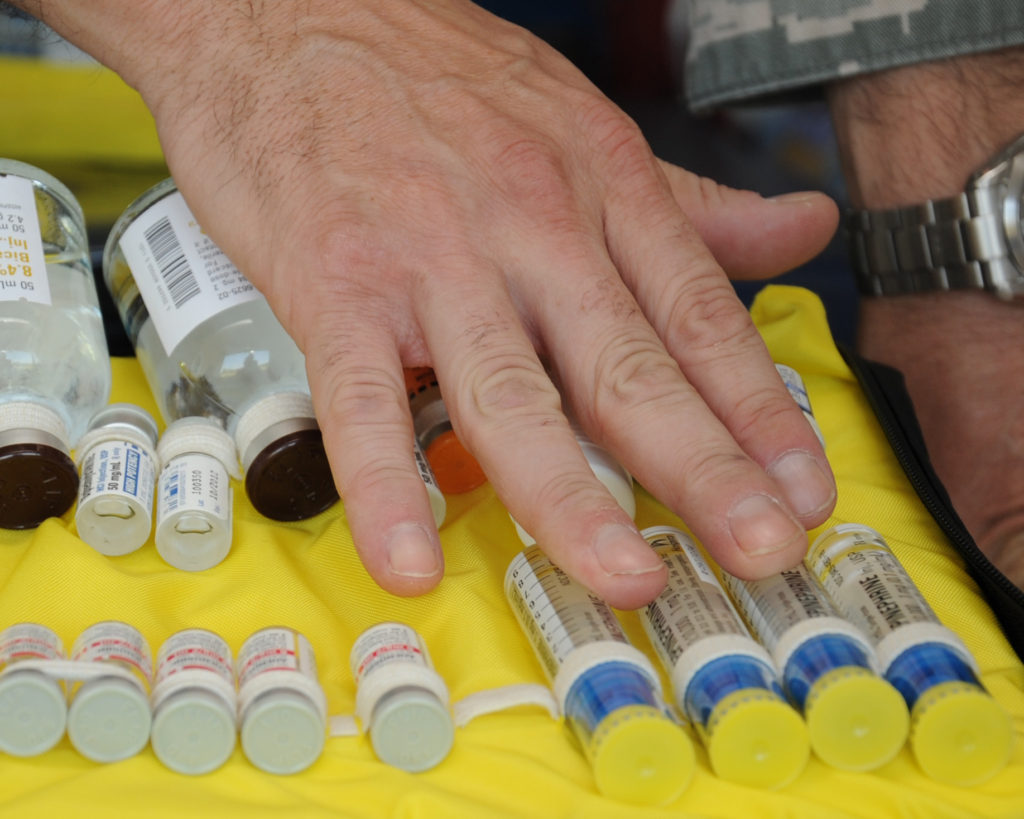 Before just agreeing to take whatever a doctor has prescribed for you, you should carefully consider getting a second or even a third opinion. Sometimes doctors either don’t test well enough to actually know what’s wrong with you, or they may provide a solution that brings its own dangers.
Before just agreeing to take whatever a doctor has prescribed for you, you should carefully consider getting a second or even a third opinion. Sometimes doctors either don’t test well enough to actually know what’s wrong with you, or they may provide a solution that brings its own dangers.
Take statins, for instance. These can be more dangerous than effective, unless you’ve actually had a stroke or heart attack. And yet, doctors hand them out like flyers to a concert if your cholesterol levels are a smidge on the high side, even if there’s zero evidence of cardiovascular disease.
There are a couple of issues with this approach. First, statins have dangerous side effects. They drain your body’s supply of CoQ10 (used by every cell in your body for energy production) and vitamin K2 (which moves calcium to the right places, like bones, and away from the wrong places, like arteries), and they hamper your ability to produce ketones (which limit the function of HDAC, something tied very closely to aging). What does this all mean? Statins can make you more prone to diseases, like cancer, diabetes, neurodegenerative illnesses (like Parkinson’s, Huntington’s, and Alzheimer’s), musculoskeletal disorders (such as myalgia and rhabdomyolysis), and cataracts. All of these potential side effects for statins, and they actually only work on about 1% of the population!

Does your prescription even apply for you?
When I was a kid, my grandpa would take me aside if he saw me crying. He would smile, pat me on the head or rustle my hair, and he’d say, “Indians don’t cry.” First of all, I’m about as white as you can be; it there’s any American Indian blood in me, it’s so small a lab
probably wouldn’t find it. But secondly, saying “Indians don’t cry” didn’t address my problem. I still had a skinned knee or had my feelings hurt. This phrase was a catch-all that only rarely applied.
This story explains the second problem with prescribing statins in every case of high cholesterol. The doctor is likely failing to address the root problem. Without the proper analysis of what’s causing your levels to be high, there’s no way to know whether the prescription will actually help you. Are the side effects of statins worth taking the chance that nothing will change with your cholesterol level?
Cardiovascular issues don’t always go back to plaque in your arteries or genetic high blood pressure. For instance, high cholesterol could be caused by hypothyroidism (low thyroid function). True, this does also increase your risk of cardiovascular disease. But one of the reasons for that is that it throws your lipid balance out of whack. Your bad lipids include LDL, the “naughty” cholesterol, and triglycerides, made from fats and sugars you take in. Your good lipids include HDL, the “nice” cholesterol. You always want lower LDL and triglycerides and higher HDL, and hypothyroidism screws this balance up.
Proper hormones to treat hypothyroidism have positive effects on your lipid transport in areas such as your blood. They stimulate the first step in the conversion of other substances into cholesterol, and they also control activation of the genes that receive LDL. For instance, a hormone known as T3 helps keep LDL from oxidizing.

Statins are prescribed way too often as a fix for high cholesterol.
But thyroid hormones can be good or bad for any number of other risk factors, not just your cholesterol levels. If you really want to avoid a heart attack, you should do more than just lower your cholesterol. Among other things, hypothyroidism has been linked to these conditions: insulin resistance (bad, since insulin helps your body use carbs, fats, and proteins properly); oxidative stress (damage over time to your cells, like the rusting of an engine); atherosclerosis (junk building up in your arteries, putting you at risk of stroke, among other things); metabolic syndrome (having at least three of five very bad medical conditions); and weight gain. All of these increase your chances for cardiovascular disease. If you get your thyroid levels back to healthy levels, you might eliminate a lot of these risk factors all in one go.
So, then, your high cholesterol could be caused by too many burger-and-fry meals, but it could also come from a problem with your thyroid itself. To be sure, you should get a test measuring your metabolic rate, since blood tests miss most cases of hypothyroidism. If your metabolic rate is low, your thyroid needs help, no matter what blood tests show.
With all of this said, very few doctors have what they need to measure the metabolic rate. They need special equipment. But going out of your way to find a doctor who can measure metabolic rate is worth it. And given the side effects of statins, you should only accept a prescription of these as a last resort, if you already have a documented case of cardiovascular disease. A second and third opinion by other doctors really could save your life.
